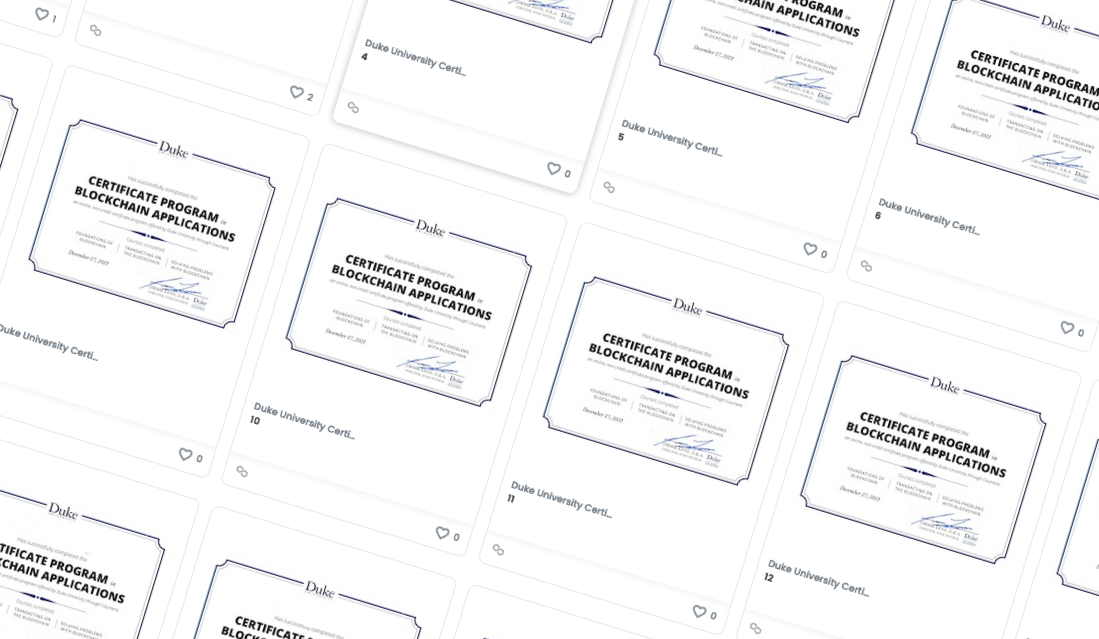Duke Engineering’s FinTech Program Sends Certificates to Coursera Students as NFTs
Those who completed a sequence of courses on blockchain received certificates of completion in an appropriate form—as unique digital tokens

Students who completed a sequence of Duke Engineering courses on the fundamentals of blockchain technology through online learning partner Coursera have received their certificates of completion via a technologically appropriate format – as NFTs, or non-fungible tokens.
“Duke is among the first institutions to provide educational credentials as NFTs,” said Jimmie Lenz, director of FinTech learning programs at Duke Engineering. “We thought it was a great way to celebrate the work of these students in completing the online Coursera certificate.”
In a little more than a dozen years, the secure peer-to-peer network concept called blockchain has gone from experimental idea to a driver of innovation and disruptive change in financial markets, banking, and securities. Blockchain powers the concepts of digital currency and NFTs – lines of computer code that can be traded as a store of value.
In a little more than a dozen years, the secure peer-to-peer network concept called blockchain has gone from experimental idea to a driver of innovation and disruptive change
Duke Engineering’s FinTech program, part of the school’s Institute of Enterprise Engineering, supports several educational programs, including the three-course sequence available through Coursera, short courses for working professionals, and a Master of Engineering in Financial Technology degree. In 2021, it launched DAREC, the Digital Asset Research & Engineering Collaborative—a research effort into digital assets that includes a publicly-available repository of commentary on the topic by Duke experts in engineering, economics, and public policy.
Lenz’s sequence of three courses builds on his deep experience as a financial professional and on Duke Engineering’s expertise in advanced computing technologies. Students in the program on the Coursera platform gain knowledge of blockchain’s history and capabilities, before applying the learnings to the creation of virtual wallets, smart contracts, and ERC-20 tokens. Students also explore cryptocurrency concepts.
The NFTs, which are custom digital images of a diploma-style certificate of completion, were developed by Paymagic. The fintech company builds payment and rewards tools for the crypto-economy—and was founded by Duke Engineering graduate Corbin Page ’10 and fellow Duke alumnus David Eiber ’14.
The NFT certificates were “minted” and distributed via the blockchain, through the Polygon network, to the 22 students who completed the most recent Coursera session, Lenz said.
Additional NFT certificates of completion are being created for students who completed Duke Engineering’s blockchain course sequence in earlier sessions.
More about fintech education at Duke Engineering:
